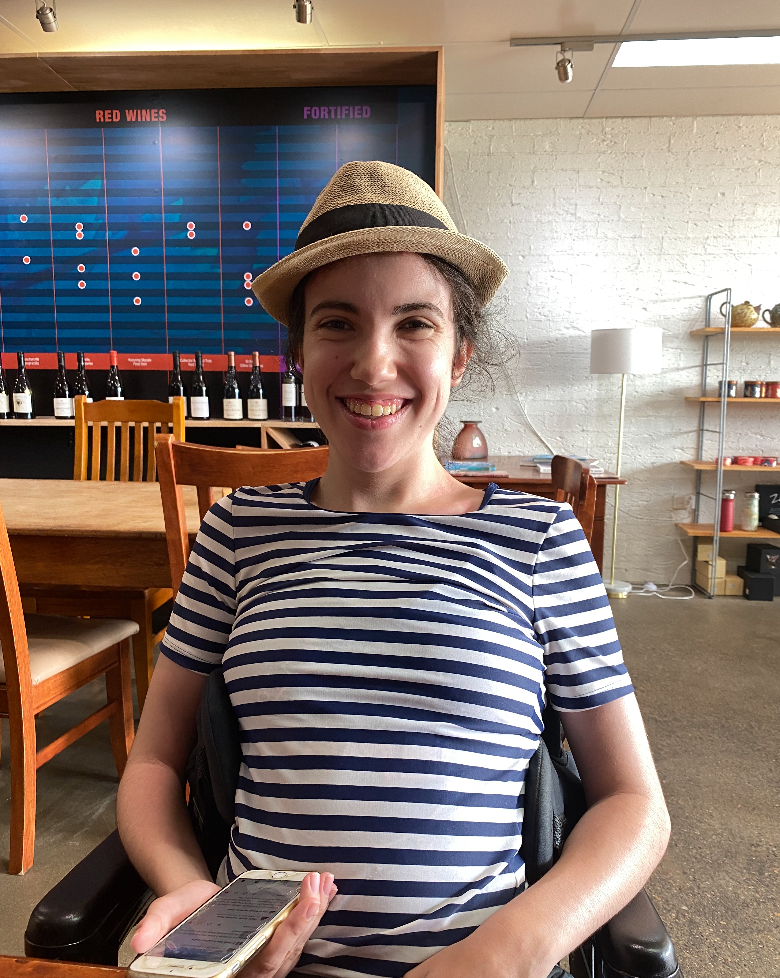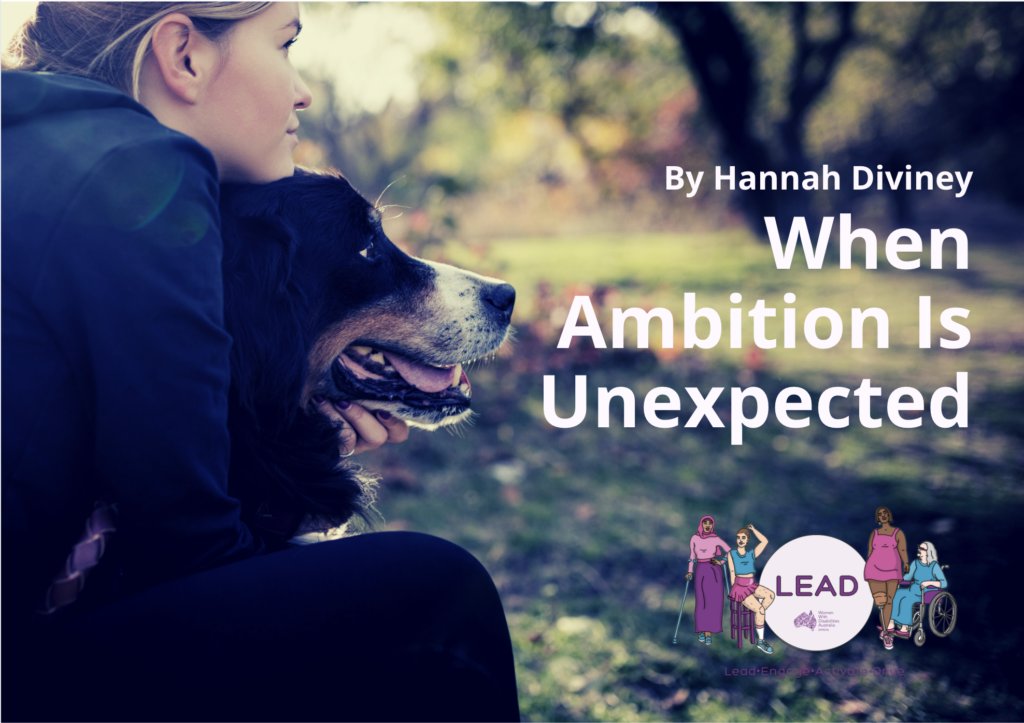By Hannah Diviney
Ambition is a funny thing. If you’re a straight, cisgender, white, able-bodied man who speaks English, then for you, ambition is synonymous with power, control and prestige. Nobody questions your right to have it or your ability to make good on it. But if you’re not any of those things, then your ambition is met with pointed looks, awkward silences and even louder detractors whose only goal is to pull your dreams out by the roots, so they are unable to bloom. Because blooming puts you outside your claustrophobic little box, inside your narrow lane and earns you the label of ‘dangerous’ among other choice words and names. Not in that you are someone, people need to steer clear of, but in that you have the power and the potential to upset the order of things. To challenge the status quo.
I’m a disabled woman in my twenties and ambition is not expected in a life like mine.
Society tells me that the only slivers of ambition I am allowed to hold must be connected to physical prowess, sporting achievement, overcoming the limitations of my disability and serving as ‘inspiration’ for the able-bodied people around me. Well, hear me loud and clear when I say that I unequivocally reject those ideas. And I do that, because ultimately, they are not healthy. I can’t overcome my disability, that’s physically impossible. What I can do is achieve with my disability firmly in tow. Any other way of thinking is just setting disabled people up for a long and painful fall.

A photo of Hannah: a smiling woman with dark hair, wearing a hat, and sitting in a chair, phone in hand.
I am also not simply a piece of ‘inspiration porn’ as the late writer, comedian and activist Stella Young would have said. For those of you who don’t know, ‘inspiration porn’ was a term coined by Stella to describe the moments when people with disabilities are approached and applauded by able-bodied people for doing the simplest things. For daring to live our lives. The intention may be good, but it sends a misguided and toxic message. You are only valuable to us if you achieve while inspiring us. You are only inspiring to us if you make us feel better about our lives. If you remind us that we should be grateful for what our bodies can do. If you make us feel like we are being a good person. No. My life is mine, to richly fill as I choose. To define success by my standards. If we’re going to talk about the standards of success for a disabled person, we have to talk about what I like to call the “Paralympic Complex.”
If I had a dollar for every time I’ve been asked some variant of the question, “So, what will your Paralympic sport be?”, I’d be a very rich woman. The answer by the way is none. Why? Well, because I am simply not interested, and you know what? That’s OK. I’m allowed to not be interested. You don’t assume every able-bodied kid will go to the Olympics or even wants to, so why is there such a narrow-minded narrative around what the ambitions and success of people with disabilities can look like? That’s not fair. Again, we have the right to fill our lives as richly as we want. We have the right to make our own choices about what that looks like. And we have the right to ask for the support we need, in order to make those dreams and ambitions a reality, no matter what they are, from a career to family and everything in between.
Just because the Paralympics isn’t a future I am personally interested in, doesn’t mean I don’t value the incredible and deservedly celebrated achievements of those who are Paralympic athletes. It doesn’t mean I don’t support those whose goals and aspirations are to represent their country on an international stage. And it also doesn’t mean I don’t have physical goals of my own that are equally worth pursuing. The point is all of these are my choices, decisions I have made, not for the purpose of inspiring others but for something far more important – to empower myself.
Every single day, in both big and small ways, I lead by making the choice to push back against the narrow and constraining expectations placed on me by society. I do it by writing pieces like this, by actively fighting for better representation for my community, and by being willing to loudly have conversations that some would prefer remain in hushed corners. Your ambition doesn’t have to look like mine though. All the ways in which it is possible to live life as a disabled person and all the dreams you have, even if you don’t share them, are valid.
I am an ambitious disabled woman, and I won’t make myself smaller anymore.
Hannah Diviney is a writer, disability advocate and pop culture fanatic living in Sydney Australia. You can follow her adventures on Instagram @hannahthewildflower or on Twitter @hannah_diviney

